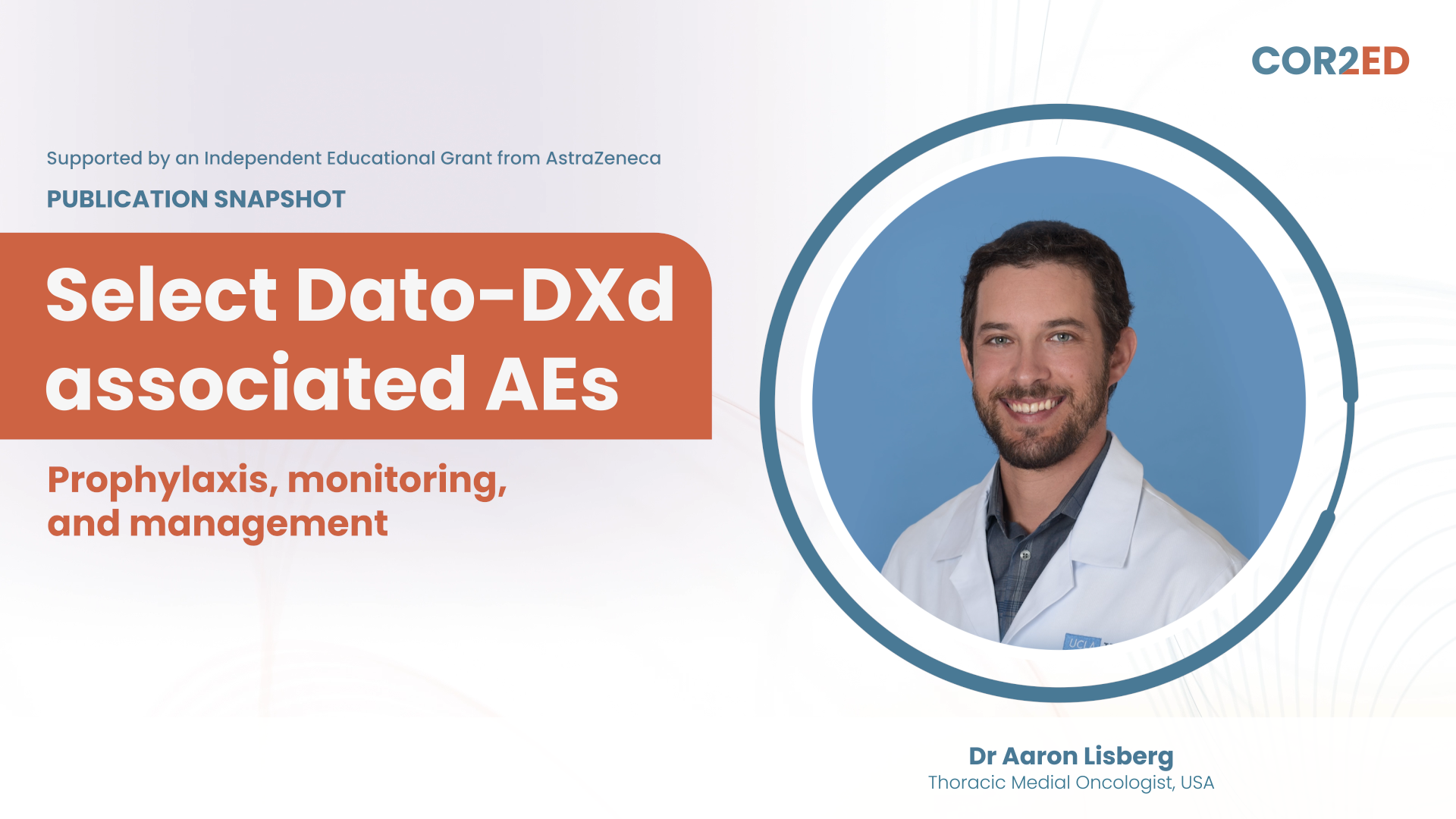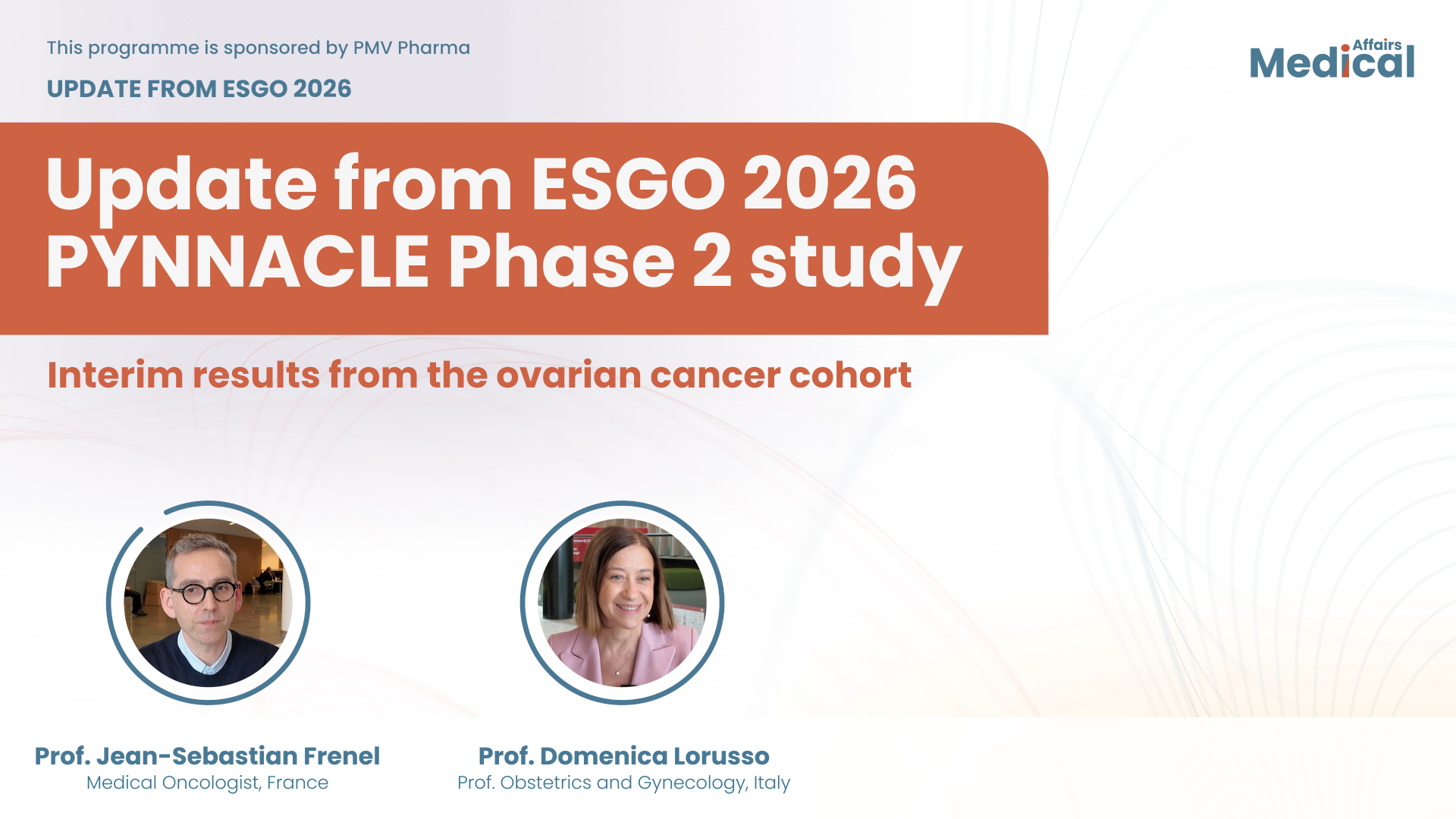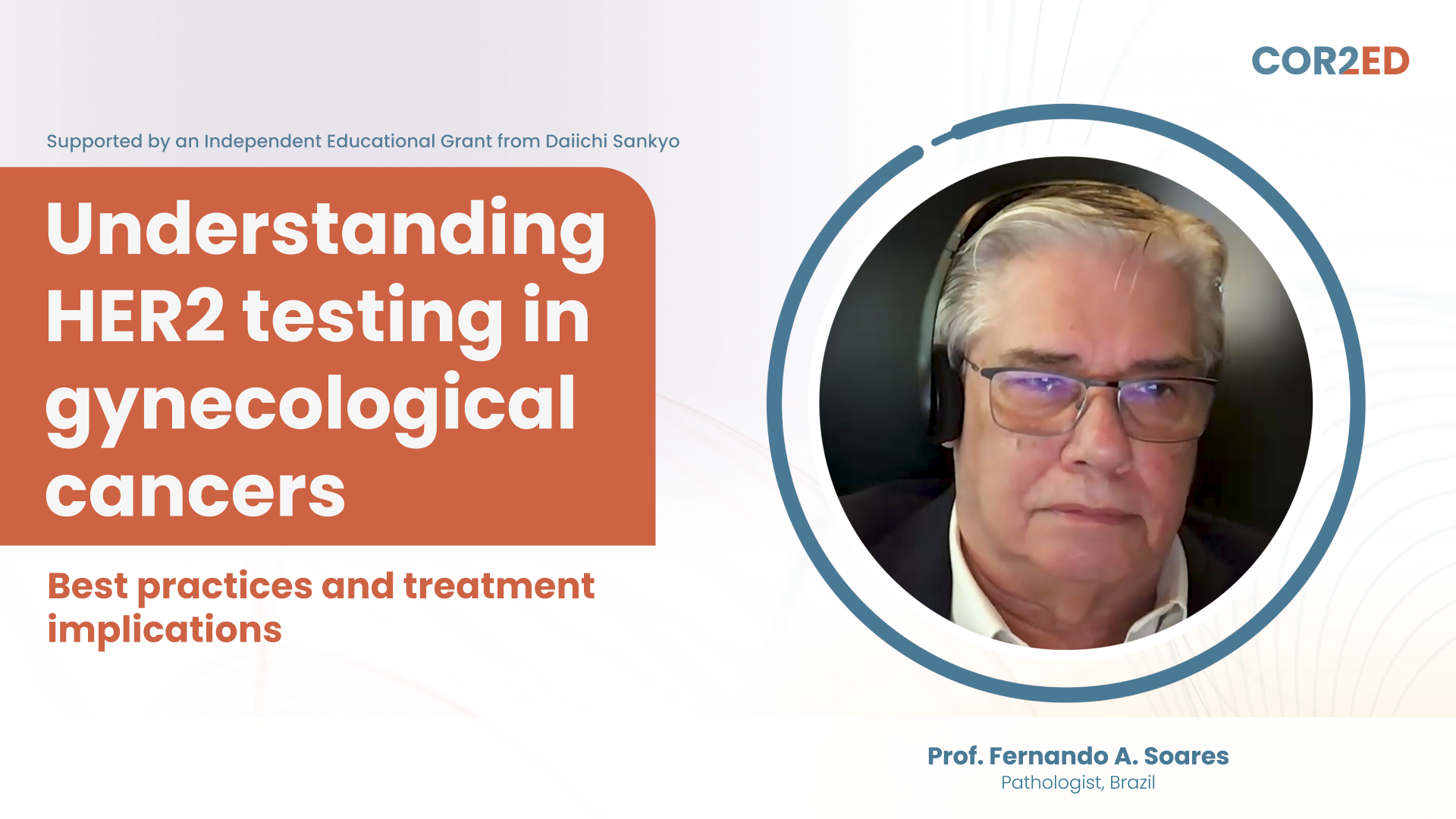Access this content to learn more about the latest long-term outcomes data for larotrectinib and new perspectives on diagnostic techniques being used to identify NTRK fusion positive cancers.
Hi my name is Fernando Santini, I’m a medical oncologist at Memorial Sloan Kettering Cancer Center.
I’m here on behalf of NTRK CONNECT to present you the Highlights By selection of abstracts at AACR, ELCC and USCAP.
First, regarding the efficacy of the first-generation TRK inhibitors, it was presented the long-term follow-up of the first primary analysis of the first 55 patients treated with larotrectinib which is the first in class, highly selective and CNS active, first-generation TRK inhibitor.
It was presented the long-term efficacy data, the two-year follow-up, that showed a continuing durable and robust response with the same overall response rate of 80 percent. But equally important than the overall response rate is the durability of response with a median 35.2 outstanding months. There were no new and unexpected adverse events observed with this longer follow-up.
Moving forward from the overall population, it was also presented data from the long-term follow-up of the 14 lung cancer patients which showed the same very good overall response rate regardless of the CNS status of these patients and after progression 3 of 4 of these patients, they showed NTRK solvent front mutations as the main mechanism of resistance.
Shifting gears a little bit to the diagnostic space which can be sometimes complicated. We have several already published algorithms to detect NTRK fusions.
Starting with a very nice work presented regarding the ctDNA analysis. We need to take into consideration that the yield to detect fusions in the bloods is much lower than in the tissue, but probably a new fusion caller, an NTRK1 fusion caller algorithm improved the detection rate of NTRK1 fusion in plasma.
About the pan-TRK IHC, which can be used as like a screening method for tumours with low frequency of NTRK fusions, there is like an overall very good agreement from the pathologists from 8 different centers but we still have the caveat of not having a good cut-off of positivity.
So in summary larotrectinib continued to show a robust and durable response. After the progression it’s important to test for the mechanisms of resistance because we have now the availability of the next-generation TRK inhibitor and we really should test all the patients for NTRK fusions in order to benefit them for receiving the first-generation TRK inhibitors.
I really encourage you to access our website and download the slides and really thank you for attention.
This programme is supported by an Independent Educational Grant from Bayer





 Downloadable
Downloadable  3 MIN
3 MIN
 Mar 2026
Mar 2026 





